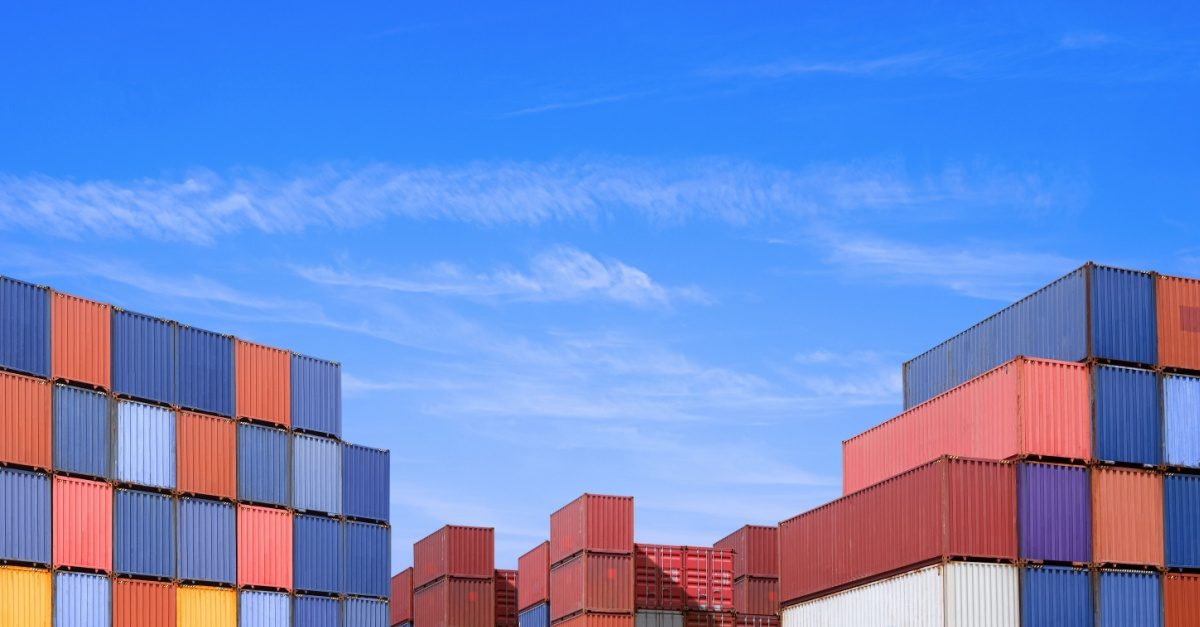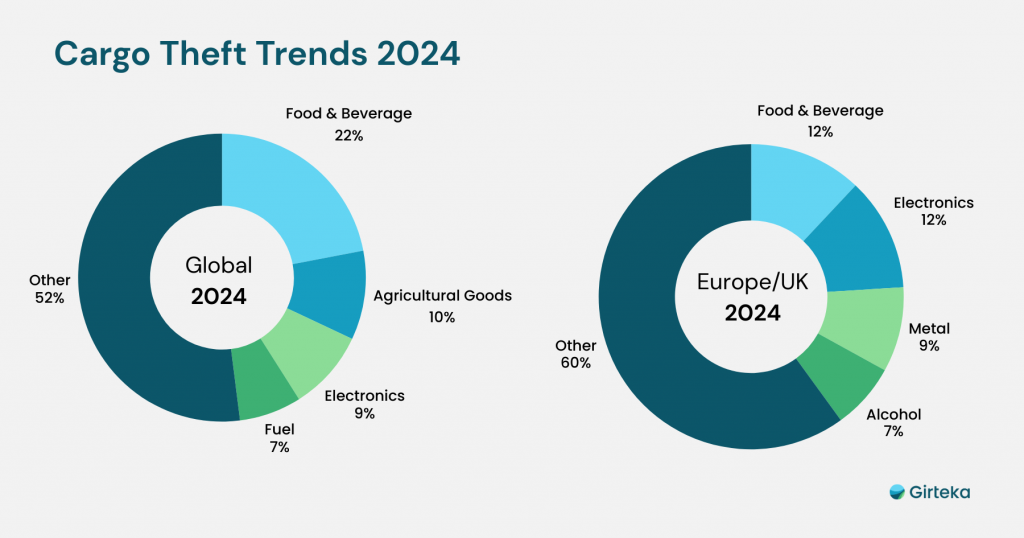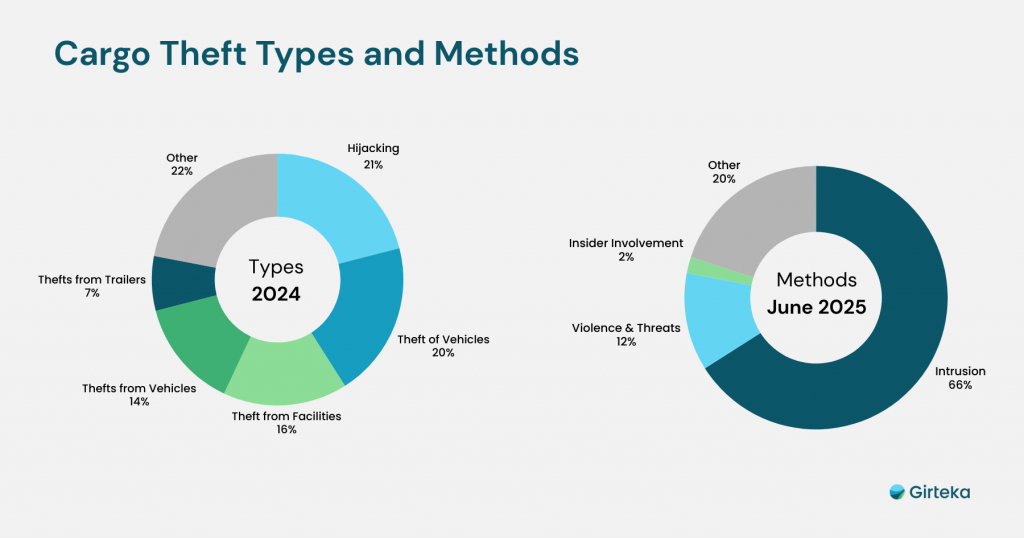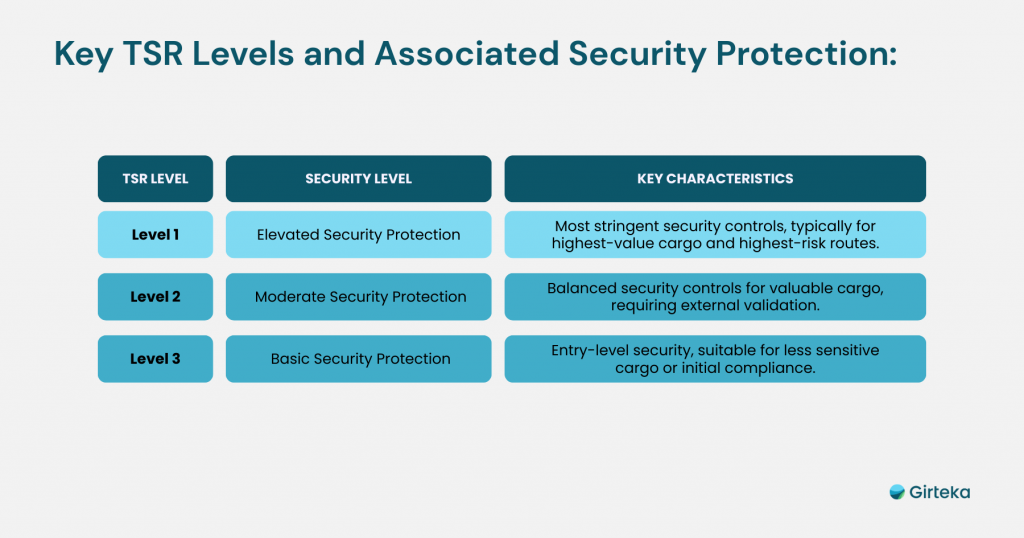
Cargo Theft: Risks, Targets, and the Essential Role of TAPA TSR for High-Value Goods
As cargo theft incidents rise across global and European supply chains, protecting high-value goods in road transport has become more critical than ever. This article explores key trends, evolving theft tactics, and how the TAPA TSR standard helps carriers, clients, and end customers to reduce theft risks and build more secure supply chains.
Global and European Market Overview & Trends
Cargo theft represents a rapidly growing and significant concern across global supply chains for all stakeholders, and has an effect on end-customers and consumers due to lost or damaged cargo.
In North America, for example, recorded cargo theft reached unprecedented levels in 2024, with an estimated $455 million (approx. €414) worth of goods stolen (a 27% increase in value from 2023 1.
Europe has not been spared by the surge either. The total value of recorded losses in the EU reached €549 million in 2023, which is 438% higher than the prior year (and over 1,000% higher than 2021) 2. A European Parliament study estimated that cargo crime costs businesses over €8.2 billion per year in Europe alone 3.
Over the three-year period from 2022 to 2024, the TAPA EMEA Intelligence System (TIS) recorded 157,421 cargo crimes across 129 countries 4. In June 2025 alone, 634 cargo theft incidents were reported, including the largest single loss — a €4 million theft of cosmetics from a trailer in Lombardy, Italy 5.
The landscape of cargo crime in Europe highlights several countries across the region in June 2025 as consistent hotspots for incidents. With Germany ranking as one of the most affected countries, followed by Italy, France, Spain, and the United Kingdom 6.
Commonly Targeted Goods: High Value, High Demand, High Risk
Thieves strategically target commodities that are valuable, portable, in constant demand, and easy to resell on the black market. Based on 2024 data 7, food and beverage products consistently dominated the list of targeted commodities globally, with 76% of thefts involving trucks as a modality compared to 68% in 2023.

Pharmaceuticals represent high-value, high-risk items. Their small size and high value make them easily concealed, and their theft poses not only financial losses but also significant public health risks if stolen medications are improperly stored or tampered with.
Improved Tactics for Organised Cargo Crime
Cargo theft has fundamentally evolved from opportunistic crimes committed by small crews targeting idle freight to highly organised, sophisticated operations with transnational reach.
In Europe, technologically sophisticated thefts are on the rise: fraudulent carriers, identity deception, cyber-enabled scams, and insider collusion are all emerging as key strategies used by cargo criminals to bypass security measures. In countries like France, Germany, Italy, Spain, and the United Kingdom, parked vehicles in unsecured rest areas and warehouses are primary targets.
2024 data shows that the most frequent incidents involve hijacking (21%), theft of vehicles (20%), followed by theft from facilities (16%), and theft from vehicle (14%) and containers/trailers (7%)8.
When looking at the methods employed, the latest data from June 2025 in Europe, the Middle East, and Africa (EMEA) indicates intrusion, such as cutting open vehicle curtains or breaking locks — dominates, representing 66.5% of cases. Violent attacks or threats of violence make up 12.6%, while insider involvement is present in 2.2%. Deceptive tactics, including fraudulent pickups, are less common but still recorded9.

As theft tactics evolve and losses surge, more transport companies and clients are investing in enhanced security measures and aligning with industry associations to stay informed about emerging threats. While the immediate costs fall on carriers and shippers, end customers are also affected, facing higher prices and occasional product shortages as a result. To counter these risks, companies are increasingly committed to complying with established standards, such as TAPA TSR, to better protect road cargo.
TAPA TSR: A Global Standard for Road Transport Security
The TAPA Trucking Security Requirements (TSR) represent a globally recognised and specialised standard developed to help ensure the safety of drivers, vehicles, and cargoes in transit by reducing the risk of theft and other supply chain security incidents10.
The TSR standard defines minimum security requirements for trucking operations, covering hard-sided/soft-sided trailers, trucks, rigid vans, and even the road transport of sea containers. It lays out the security-related processes, technologies, and protocols that transport companies must implement to protect cargo from theft.
A key strength of TAPA TSR is its dynamic nature. The standards are rigorously reviewed and updated every three years to ensure they continuously protect and support TAPA members in managing new or emerging risks in their trucking security. TSR certification is also tiered into three classification levels (Level 1, 2, and 3), with Level 1 being the highest.

TAPA TSR: Strategic Imperative for Logistics Service Providers (LSPs), Cargo Owners, and Broader Supply Chain Ecosystem
Logistics Service Providers (LSPs) & Carriers
For LSPs, like Girteka, for example, offering TAPA TSR-compliant security as a service, this means adopting not only hardware-level protection but also end-to-end operational protocols.
In practice, a high-security standard translates into application across key pillars for the transportation service, such as owned fleet (trucks, reefer, and box trailers), operations planning, response protocols, and even the human element.
- Monitoring: 24/7 GPS tracking, geofencing, and deviation alerts for rapid response.
- Truck Security: truck alarms and SOS buttons for emergencies.
- Trailer Security: secure mechanical locking systems, unique keys, ISO 17712 seals, and door alarms.
- Route Planning: route risk assessments, secure parking locations
- Emergency Response: 24/7 monitoring center with rapid deployment of security services.
- Driver Training: mandatory annual security training
Cargo Owners & Shippers
For cargo owners, especially those shipping high-value or high-risk goods, being certified and compliant to TAPA TSR Level 1 means more than just operational security – it’s tangible risk reduction.
Whether transporting pharmaceuticals, electronics, or automotive components, opting for a TAPA TSR-certified logistics service provider helps ensure cargo security, supports insurance compliance, and safeguards reputation. It’s a level of security that not only protects the product but also strengthens client confidence across long and complex supply chains.
Broader Supply Chain Ecosystem
TAPA TSR certification extends benefits well beyond the carrier-client relationship. For the broader supply chain ecosystem, including insurers, regulators, freight forwarders, and manufacturers, it offers a clear and consistent framework for evaluating and managing security risks.
- Insurers: gain greater visibility into LSPs practices and can factor certification into risk assessments or policy conditions.
- Authorities and regulators: see certification as evidence of proactive compliance with best practices in cargo protection and supply chain resilience.
- Logistics partners and manufacturers: benefit from a unified standard when selecting transport providers across borders, improving operational consistency and accountability.
In today’s logistics landscape, cargo security is no longer optional – it’s a competitive differentiator. As criminal methods advance, standards like TAPA TSR define not just who delivers goods, but who does it with trust, responsibility, and resilience.
About Girteka Group?
Girteka Group is the largest European asset-based transportation company, delivering more than 700 000 full truck loads (FTLs) annually across Europe with a fleet of 6 000 modern trucks and 7 000 trailers.?
At Girteka, we have a clear aim to be the obvious first choice for our clients, colleagues, partners, community, and shareholders.?Every day, we strive to deliver the best possible customer experience and ensure the highest level of transportation service reliability.?With more than 13 000 passionate employees, we are making a meaningful impact on the future of logistics.??
We are committed to highlighting the importance of truck drivers’ profession, road safety and environmental challenges, as well as raising awareness of the responsibility every one of us has towards society and our surroundings. As a Group, we secure profitable and sustainable growth with our partners and shareholders through state-of-the-art digital solutions that are driving the future of logistics and transportation.?
Our scope of services consists of temperature-controlled transportation and tailored solutions within the pharmaceutical, food & beverages, and high-value cargo sectors. Aside from traditional road transportation, we offer intermodal and multimodal transport, and sustainable transportation solutions.??
With a dedicated team of experienced professionals specialising in European freight transportation, we ensure regional expertise and a customer-centric approach, focusing on all our clients’ goals.?
This is our Responsible Logistics.
